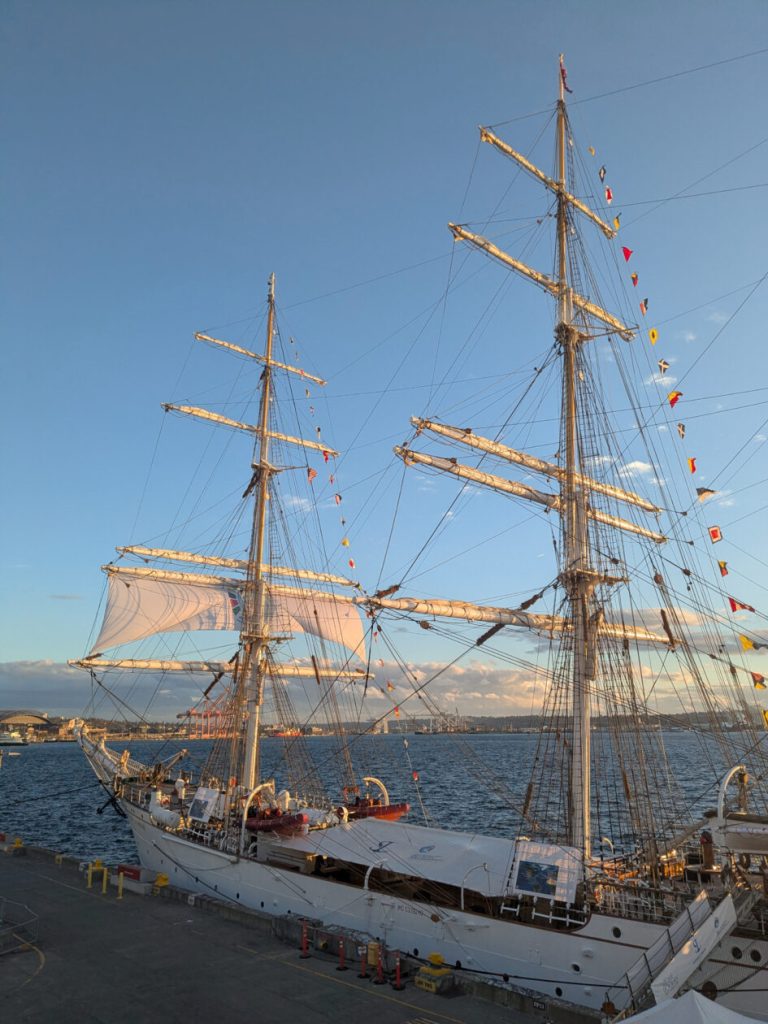One Ocean Week Seattle: Maritime Leaders Unite for Sustainable Future
In the heart of the Pacific Northwest, a momentous gathering took place this week as hundreds of global leaders converged for the inaugural One Ocean Week Seattle. This maritime conference, orchestrated by Washington Maritime Blue, brought together an impressive array of company executives, government officials, and ocean advocates all committed to a common cause: advancing cleaner shipping practices, promoting sustainable fishing methods, and championing ocean conservation efforts. The week featured numerous events, with the One Ocean Summit on Wednesday serving as the centerpiece where leaders from global companies with Seattle connections discussed their climate initiatives and the hurdles they face in implementing sustainable technologies.
The maritime industry stands at a critical crossroads, as evidenced by the experiences shared by Seattle-based SSA Marine, a global terminal operator with 200 locations worldwide. The company, responsible for the complex logistics of moving cargo from ships to terminals and onto trains and trucks, has established carbon emission targets and is actively working to transition from traditional gas and diesel power to electrical alternatives. However, this transition is far from straightforward. As Meghan Weinman, SSA Marine’s vice president of sustainability, explained, the shift requires a delicate balancing act: “If you have a piece of electrical equipment, you have to think about charging time that’s required in between shifts, and when can you actually fit it in there?” The challenge extends beyond simply replacing equipment—it demands a comprehensive rethinking of technology integration, labor planning, and operational efficiency. This complex reality underscores why innovation must address multiple interconnected factors simultaneously for sustainable maritime practices to succeed.
The conference spotlighted companies that are pioneering solutions to these maritime challenges, including Corvus Energy, a Norwegian clean shipping enterprise with Seattle offices and a manufacturing facility in Bellingham. Specializing in maritime battery technologies, Corvus is helping transform vessels ranging from ferries and cruise ships to tugs, cranes, and fishing boats into electric-powered craft. However, as CEO Fredrik Witte emphasized, developing batteries for maritime use presents unique challenges compared to other applications: “It is totally different to operate a battery in an EV versus a maritime setting. For an EV, you’re traveling three, four hours a day, maybe. But in a maritime setting, you’re potentially operating 24/7—in the extreme.” This demanding environment explains why Corvus invests up to 15% of its annual revenue in research and development, constantly refining its technology to withstand the harsh conditions of oceanic operations. Their commitment illustrates how specialized innovation is essential for maritime sustainability.
Seattle’s Trident Seafoods offered yet another perspective on the challenges facing maritime industries pursuing sustainability goals. As operators of fishing boats and onshore production facilities, including North America’s largest seafood processing plant in Akutan, Alaska, Trident recognizes that while seafood typically has a significantly lower carbon footprint than land-based protein sources like beef or pork, there remains substantial room for improvement in reducing the climate impacts of their operations. However, Paul Doremus, Trident’s vice president of policy and sustainability, highlighted a sobering market reality: American seafood companies directly compete with Russian and Chinese enterprises that operate under far less stringent environmental regulations. This competitive disadvantage creates tension between sustainability goals and economic viability. Doremus suggested that the solution lies in greater industry cohesion, calling for the traditionally “fragmented, small, fairly scrappy” seafood sector to unite in making collective improvements. His praise for events like One Ocean Week Seattle underscored the importance of gathering diverse maritime interests to attract attention and capital toward “sustainable use of the ocean for the benefit of local communities, regional and national.”
The theme of collaboration reverberated throughout the summit, which featured distinguished speakers including former NOAA Administrator Jane Lubchenco, United Nations officials, and Norway’s ambassador to the United States. Washington Lt. Gov. Denny Heck delivered a compelling welcome address that celebrated the state’s maritime economy while acknowledging serious threats from plastic pollution, undersea noise, and environmental degradation. His call to action was clear: “To face these challenges, we will need to develop new technologies and strengthen our institutions. It will require sustainable fuel storage, habitat restoration, quiet propulsion and so many other inventions and innovations. But more importantly, it will require the dedication and teamwork of thousands of people.” This sentiment was powerfully reinforced by the presence of the Statsraad Lehmkuhl, a 111-year-old Norwegian tall ship moored just outside the conference center as part of its global One Ocean Expedition. As expedition leader Haakon Vatle explained, “The role of our ship is to create attention and share knowledge of the crucial role of the ocean for a sustainable future. We’re going to use a ship to reduce the gap between science and the public—get the people we need for the ocean we want. We cannot save the ocean alone.”
One Ocean Week Seattle represents a significant milestone in the ongoing effort to reimagine maritime industries for a sustainable future. By bringing together diverse stakeholders from across the globe, the conference created a forum for sharing challenges, innovations, and visions for protecting our oceanic commons while maintaining vibrant maritime economies. The discussions revealed both the magnitude of the challenges ahead and the ingenuity being applied to solve them—from electrifying cargo operations to developing specialized marine batteries and promoting sustainable fishing practices. What emerged most clearly was the recognition that no single company, industry, or nation can address these challenges in isolation. As vessels like the Statsraad Lehmkuhl sail the world’s oceans raising awareness about marine conservation, the message from Seattle echoes across the waters: the path to ocean sustainability requires unprecedented collaboration, innovation, and commitment from all who depend on these vast blue expanses for commerce, food security, and the very health of our planet. The inaugural conference has set the stage for what many hope will become an annual gathering, strengthening the networks and partnerships essential for translating ambitious sustainability goals into tangible actions and measurable progress for our one shared ocean.


